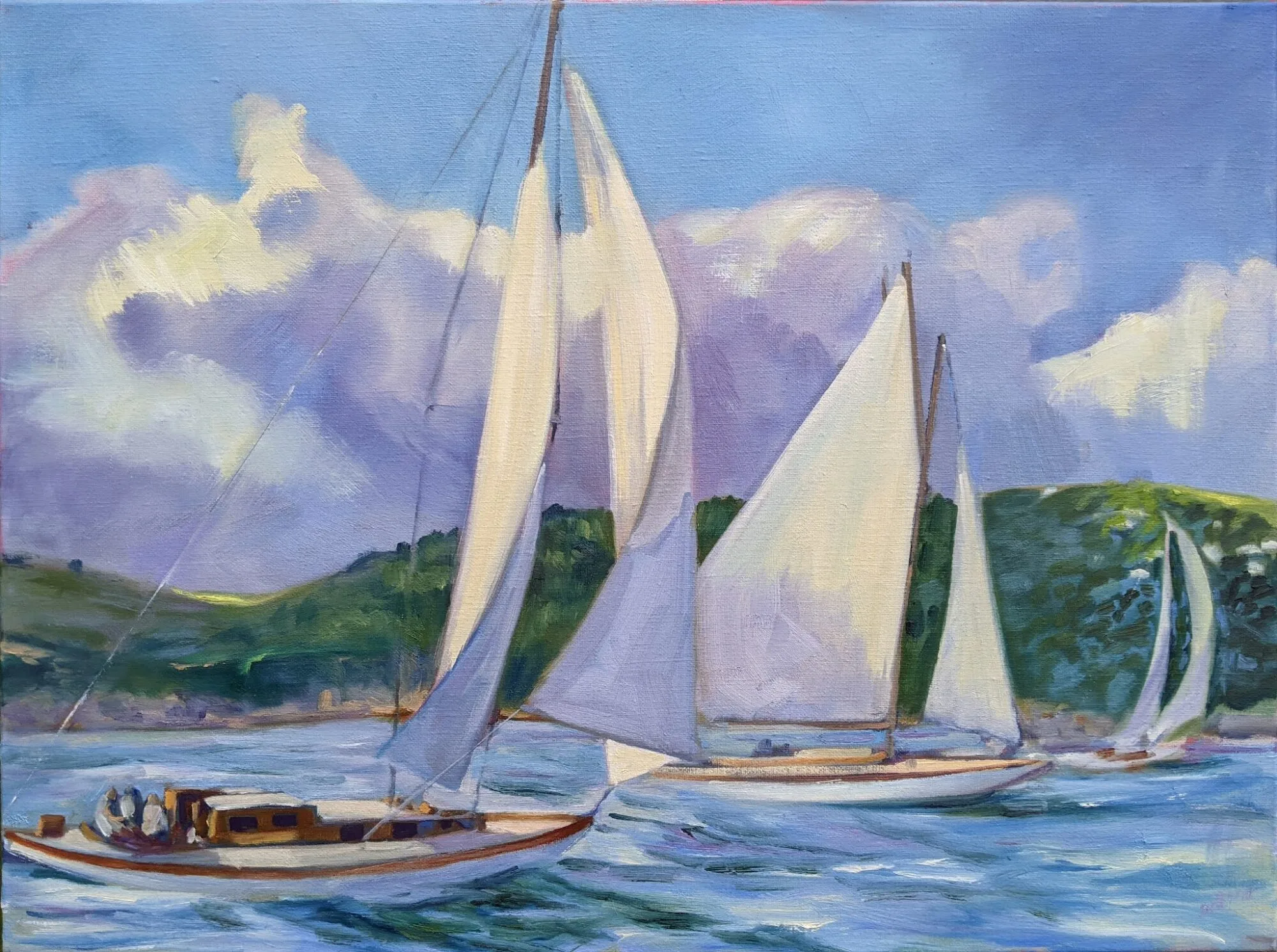The world still has a place for exceptionalism; the young person’s first job is to recognize his own unique gifts.
| Full Stop, by Carol L. Douglas |
I have a friend who has a warm, light, perfectly-feminine speaking voice. However, she sings with the basses in her church. There are women who have naturally deep voices; they’re contraltos. I express my skepticism that she is one. The true contralto voice is a matter of where the timbre and power lie, not what notes the untrained voice finds comfortable.
Recently, she spent a Sunday evening with her Amish neighbors, singing. People called out hymns and then were expected to lead their selections. “Croaking” was the word she used to describe her star turn. That, I tell her, is because she’s not singing in her true voice.
It’s a great metaphor for doing the wrong thing and expecting good results. As long as she sings in the bottom of her range, she’s going to sound like a strangled frog.
| Little Giant, Carol L. Douglas, courtesy Camden Falls Gallery |
We’re very blessed to live in the time and place we do. My mother, the daughter of immigrants, once said, “I never had time for self-actualization.” She wasn’t kidding. She worked like a dray-horse from her sixteenth birthday on. It’s no surprise that I was discouraged from going to art school. To children of the Depression, that seemed very flighty.
Young people often ask, “How did you become an artist?” I was one of those kids born with a pencil in my hand, but that wasn’t enough. I was painting in oils before I reached my teens (thanks to my father) but that wasn’t enough, either. I worked in other fields for several decades, drawing or painting in my few private moments. It wasn’t until my fourth kid was born that I had the courage to step into my calling.
| Headlamps, Carol L. Douglas |
It wasn’t my epiphany at all. My husband had a far clearer understanding of how I was “singing bass” when I’m a natural soprano. He pushed me in the direction of painting, and then supported me when I flitted off to New York City and the Art Students League to learn to do it properly.
Do I regret those years doing other work? Not hardly. For one thing, that’s how I learned the craft of writing. Working a day job also put me firmly on the side of the doers rather than the dreamers. That profoundly shaped my view of art.
 |
| American Eagle in Drydock, courtesy of Camden Falls Gallery. |
Young people ask these questions because they’re struggling to figure out their own places in the world. They’re often trying to figure out how to make a living off the beaten path. I can only tell them my own story and then counsel them to dig down to their primary gifts—the ability to teach, to tell stories, to think clearly, to lead, to work with their hands, to serve, or to create. The world still has many places for unique and exceptional people; their problem is to understand their own gifts and how to use them in the service of others.
I’ve got one more workshop available this summer. Join me for Sea and Sky at Schoodic, August 5-10. We’re strictly limited to twelve, but there are still seats open.
